
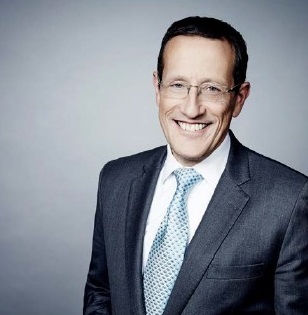
Interview with CNN’s Richard Quest
Foremost international business broadcaster Richard Quest is one of the best-known faces of the CNN team. Quest, who moderated the 22nd UNWTO General Assembly’s high-level debate on tourism and the SDGs, shares his views on the prospects of the sector.
Q – You have been reporting about the tourism sector for the last decade. How do you see the evolution of the sector in the coming years?
A – One has to bear in mind that tourism is one of the fastest-growing sectors in the world; its percentage of GDP is 10% and it represents 1 out of 10 jobs. Its significance is not in doubt. The question is how to grow in a sustainable way. Can the benefits be enjoyed by all or do we end up with a race to the bottom? That is going to be the big challenge: to create a tourism industry that is meaningful, sustainable and profitable.
Q – UNWTO works closely with the media and contributes to enhancing the capacities of journalists to report on tourism. What in your view is the role of the media community in supporting sustainable tourism?
A – The role of the media is not about promoting one view or another. Sustainable tourism is a policy already developed in the context of the United Nations and more precisely in the World Tourism Organization, as part of the SDGs.
Therefore, we have to report about it, about the progress being made and whether it has sense or whether it goes off the rails. I think that one thing that the media can become obsessed with is the question of if we are creating this framework, if the goals are being met, if UNWTO is doing the right thing or the wrong thing…That is not our job. Our job is to report on what is happening, how it is being enforced and how it is being monitored, and to point out the successes and those situations where more work needs to be done. But we are not in the business of promoting somebody else’s agenda. It would be a great mistake for people to believe that this is the role of the media.
Q – One of UNWTO’s areas of work is to support tourism administrations’ communication with the media. What would be your advice to destinations to improve their media relations?
A – You cannot engage with the media only when things are going well. You cannot contact people like me and say “I have a great story for you, come along” or “why do you not come and promote this?” A good story is a good story, but the real relationships are those that are built over a long period of time, where the media grows to understand the good that is happening in your country, the difficulties there and what is being done to solve those.
Tourism ministers who are in a regular dialogue with the media saying “this is what we are doing about sustainable tourism”, “this is what we are doing about terrorism”, “this is what we are doing about security” or “by the way, we have an issue with overcapacity or overbuilding on the seafront, this is what we are doing”… These are the ministers who will have my ear when they have a good story or a challenging story.
So, my advice to any tourism minister or tourism bureau is that media relations cannot be turned on and off. It does not work that way. You will get burnt. Longstanding relations with the media build bridges that both parties cross in the future.
SOURCE: UNWTO Daily, Author unknown.
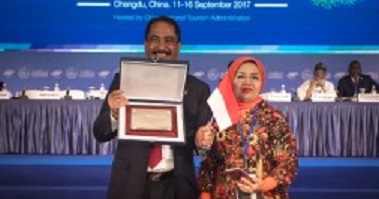
2017 UNWTO Video Competition: And the winners are..
UNWTO unveiled the winners of the 2017 Video Competition at the 22nd General Assembly held in Chengdu, China. Taking the People’s Choice Award was Indonesia.
Regional winners were:
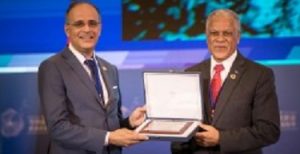
Africa – Tunisia
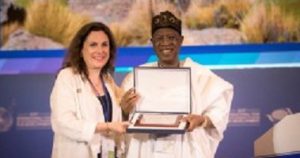
Americas – Chile
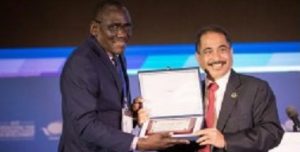
East Asia and the Pacific – Indonesia
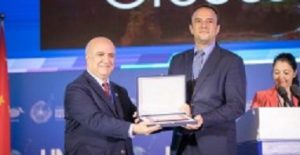
Europe – Greece
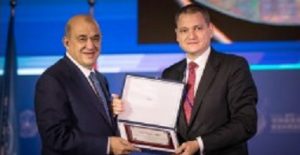
Middle East – Egypt
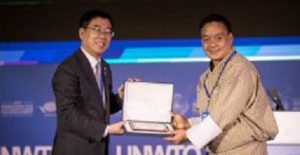
South Asia – Bhutan
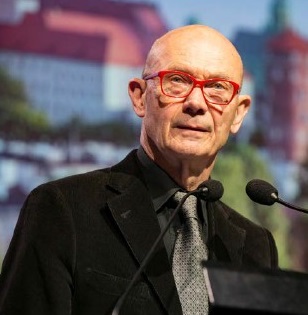
Interview: Chairman of the World Committee on Tourism Ethics
Appointed as Chairman of the World Committee on Tourism Ethics in 2013, Pascal Lamy has been instrumental in the process of presenting the Convention on Tourism Ethics to the 22nd UNWTO General Assembly. Here, he is interviewed at the UN World Tourism Organization (UNWTO) GA meeting in Chengdu, China.
Q. The exponential growth of the tourism sector should translate into higher ethical responsibility. What, in your opinion, are the main challenges that the sector faces in that regard?
A. In the last decades, the number of travelers has multiplied by three and the tourism sector has been growing at a rate of 4% per year. This means that it is necessary to make sure that the 1,235 million tourists travelling today do not become 1,235 problems. Protecting the environment, respecting human rights – particularly those of societies’ most vulnerable groups – and preserving cultural richness and traditions, as well as tangible and intangible heritage, are some of our current challenges. These are also the pillars of the International Year of Sustainable Tourism for Development, pillars that should guide the responsible growth of the sector in the coming decades.
Q. What is the Convention on Tourism Ethics and what impact do you expect it to have in the sector?
A. We presently have a Global Code of Ethics for Tourism, which was adopted in 1999, on how to develop tourism in a responsible and sustainable manner. It is addressed to all stakeholders alike: governments, tourism operators, the hotel sector, tourism workers and travelers. It has been working reasonably well, but we feel that we have to make it stronger. With tourism’s growth we have to take the collective commitment to ethical tourism a step further, via the conversion of the Code into a proper Convention. Probably not all Member States of UNWTO will sign this, but we expect a lot of support. The Code of Ethics is for Member States, operators, industry and consumers. The Convention, being an international, legally-binding treaty, can only be signed and ratified by Member States. Consequently, they are the ones that have to make sure that all actors of their national tourism sectors are responsible and work together to make tourism more ethical. The approval of the Convention, is an ideal achievement of the International Year of Sustainable Tourism for Development that we are celebrating throughout 2017.
Q. What are the key pillars of the Convention on Tourism Ethics?
A. Based on the Global Code of Ethics for Tourism, the Convention has a set of ethical principles that encompass key areas of responsible development, which largely coincide with the UN 2030 Agenda.
• Sustainable development and wildlife, promotion of local culture, waste and energy management, climate change and pollution control);
• Social issues (poverty alleviation, quality of life, protection of children, empowerment of women, accessibility to tourism for all);
• Local community development (local employment opportunities through tourism, local consumption patterns, respect of the rights of indigenous people);
• Improved understanding between cultures (ensuring respect of host societies, transparent tourist information); and
• Labor issues (equal opportunities and nondiscrimination, paid leave, freedom of association, working conditions, career development programs).
Q. How was the text of the Convention prepared?
A. Shortly after the 2015 UNWTO General Assembly, it was decided that the Code of Ethics would have to be converted into an international convention. The UNWTO Secretariat was requested to start preparations to this effect and a Working Group was set up to draft the convention. All UNWTO Member States were invited to be part of the Working Group. As Chairman of the World Committee on Tourism Ethics I participated in all meetings of this Working Group.

Smart tourism trends tackled at UNWTO General Assembly
The ‘smart’ concept has reached almost everything around us: phones, watches, cars… and also destinations. Smart tourism has taken center stage at the 22nd session of the World Tourism Organization (UNWTO) General Assembly, currently taking place in Chengdu, China. The GA Special Session on Smart Tourism builds on the 1st UNWTO World Conference on Smart Destinations held in Spain earlier this year.
Transport, accommodation, travel reservations and even knowledge are impacted by the ‘smart tourism’ approach. This comprises a whole philosophy leading to more liveable, accessible and sustainable destinations, not only for visitors but also for locals. This model is of great significance and relevance in 2017, when the International Year of Sustainable Tourism for Development is being celebrated widely.
In a General Assembly special session by CNN International anchor Richard Quest interviewed the CEO of TripAdvisor Steve Kaufer “Smart tourism is not a trend, but is the future of tourism development,” said UNWTO Secretary-General Taleb Rifai. “The International Year of Sustainable Tourism for Development 2017 and the General Assembly together comprise the perfect framework within which to conduct such an event and to join synergies around this theme, as it addresses major challenges and opportunities of the tourism sector in the coming years,” he commented.
New platform tourism services or the so-called sharing economy, big data, destination marketing, accessibility, energy and waste management, and urban mobility were some of the topics addressed at the session in Chengdu.
The session was opened by interventions from Rifai, Chairman of the China National Tourism Administration Li Jinzao, and Sara Mathews, Chairperson of PATA. Participants at the event called for increased participation of all involved parties, including private sector and government, to induce progress in creating smart destinations. Two panels on new technologies and smart tourism.
The conference included the signing ceremony of the International Smart Tourism Center by the Talal Abu-Ghazaleh Organization (TAG-Org) and two panels – on new technologies to enhance tourism sector performance, moderated by Anita Mendiratta, Strategic Advisor to CNN International for T.A.S.K Group, and on smart destinations, led by Antonio López de Ávila, Special Advisor of the UNWTO Secretary General on Tourism and Technology. The first panel provided essential background knowledge about the latest wave of digital technologies and applications and their impact on tourism. Research on new platform tourism services was presented by John Kester, Director of the UNWTO Statistics and Trends Program. The panel included Arief Yahya, Minister of Tourism of Indonesia, Mikael Ahlstöm, CEO and Founder of Britny, Kaye Chon, Dean and Chair Professor of the Hong Kong Polytechnic University, Shaohua Li, CEO of AliTrip, Jason Song, Chairman of Drore Technology and Duncan Horton, CEO of Travel Weekly.
The second panel served to present initiatives to demonstrate the impact of digital applications on enhancing quality of the visitor experience. Mapping applications, virtual reality and the future of the so-called sharing economy in tourism were debated in the panel, which contained: David Scowsill, CEO of EON Reality, Sérgio Guerreiro, Director of Knowledge Management and Corporate Affairs of Turismo de Portugal, Hong Wang, Deputy Mayor of Hangzhou, Changje Yu, Committee Member of Tiantai Town, Carlos Romero, Director of Tourism Research at SEGITTUR and Jeremy Jauncey, Founder and CEO of Beautiful Destinations.

12 months to define the future of the tourism sector
Since the designation in 2015 by the United Nations General Assembly of 2017 as the International Year of Sustainable Tourism for Development (IYSTD), a lot has happened. Governments have supported measures to advance sustainability policies, the private sector has progressively engaged in the cause, and travelers have been called upon to be more aware of their contribution to sustainability through the UNWTO ‘Travel.Enjoy.Respect’ Campaign.
More than 1000 participants attended the launch of the IYSTD early in 2017. FITUR, the International Tourism Fair held annually in Madrid, Spain, hosted the presentation of this major celebration. Months later, more than 650 initiatives celebrating the IYSTD have been shared in the online tourism4development.org platform alongside solutions for sustainable tourism. In the last months, UNWTO has designed 10 Special Ambassadors for the IYSTD who have joined the celebrations promoting the Year around the world, scheduled 14 global events and gathered the support of 61 partners.
“We have come upon a unique opportunity to advance sustainable tourism worldwide; the commitment of all parties – governments, civil society and private sector – is essential to capitalizing on this historic moment and building a more responsible sector in the years to come. The International Year will not end in December 2017,” said UNWTO Secretary-General Taleb Rifai.
One of the points addressed in the event held at the UNWTO General Assembly has been the legacy of the International Year. The awareness reached, the commitment achieved and the engagement attained in the last months were underlined as key assets to capitalize on the IYSTD in future years.

UNWTO launches report on New Platform Tourism Services
Understand, rethink and adapt – a UNWTO Report on New Platform Tourism Services was presented at the UNWTO General Assembly in Chengdu, China. New platform services, or the so-called sharing economy, remain one of the game changers for the tourism sector. The topic was discussed at the UNWTO General Assembly’s special session on smart tourism, where UNWTO presented its latest report ‘New Platform Tourism Services (or the so-called Sharing Economy) – Understand, rethink and adapt’. The report recommends ‘to find creative solutions to safeguard consumer rights and quality standards while ensuring fair competition for all businesses.’
While tourism continues to grow strongly, a shift in business models and consumer behavior has been noticeable over the last years. The combination of the global economic crisis, advances in technology and the emergence of digital platforms has resulted in the rise of new platform tourism services, often referred to as the sharing economy.
The report aims at providing useful insight on the new platform tourism services and at contributing to the ongoing discussion and collaboration around them among stakeholders. The publication looks into new platform tourism services across destinations worldwide in five main areas – information, accommodation, transport, food and ‘things to do’ or tourism activities. The study aims to gain a better understanding of how this phenomenon is shaping the tourism sector, to identify the specific opportunities and challenges it poses, and to assess possible actions moving forward.
Findings and recommendations
The report is based on a survey, among UNWTO Member States, Affiliate Members and a selection of 250 destinations, on the importance and impact of the new tourism services. A total of 114 responses were received from organizations across all world regions and three key conclusions emerged:
- New platform tourism services are important and are expected to continue growing in importance in the coming decade. Of the five areas identified in new platform tourism services (information, accommodation, transport, food and other tourism activities), information and accommodation appear to be the most relevant today, followed by transport services. Food and other tourism activities remain somewhat behind in terms of current importance.
- The positive impact of new platform tourism services outweighs their negative effects according to the participants of the survey.
- Opportunities generated should not distract from the pressing need to address the economic, social or environmental challenges created by the new platform tourism services. Doing so requires a comprehensive approach encompassing four key governance areas: (i) planning and sustainability; (ii) fair competition; (iii) consumer protection; and (iv) labor conditions.
As stated by UNWTO Secretary-General Taleb Rifai in the introduction of the report, “we have identified three main directions in the way forward: understanding and monitoring the new platform tourism services, rethinking regulation and addressing the interests of all stakeholders involved – tourists, workers, providers, platforms, competitors, and local communities – and, finally, adapting to the market challenges based on a ‘4C’ approach – communication, collaboration, cooperation and coordination.”
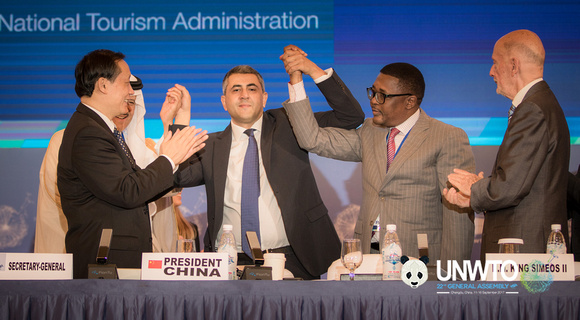
Interview with UNWTO Secretary General elected
UNWTO General Assembly Daily published this prepared interview with Ambassador Extraordinary and Plenipotentiary of Georgia to the Kingdom of Spain, the Principality of Andorra, the People’s Democratic Republic of Algeria and the Kingdom of Morocco, Zurab Pololikashvili, has been appointed by the General Assembly of the World Tourism Organization (UNWTO) as its next Secretary General. Pololikashvili was Minister of Economic Development of Georgia (2009-2010) and Deputy Minister of Foreign Affairs of Georgia (2005-2006).
The author of the Interview was not named:
Q – What are your priorities for the Organization in the four years to come? What would you like to achieve?
A – My vision for UNWTO is fully based on the needs of its Member States, considering current political and economic uncertainties across the globe. Let me briefly present some key areas. One of the top priorities will be to expand the UNWTO membership and attract new countries to join the Organization for them to benefit from its services and activities. Cooperation with new Members on tourism’s contribution to the Sustainable Development Goals (SDGs) is essential in order to assist governments and companies in incorporating relevant aspects of the SDGs into policies and business operations. I will actively encourage leading donor agencies to be involved in the implementation of a wide range of projects and capacity-building programs on national and sub-regional levels. I propose to initiate the following thematic platforms to expand UNWTO’s advocacy work and awareness-raising: a global leaders’ summit on travel and tourism for heads of state, in parallel with the UNWTO General Assembly; an annual ministerial meeting on safety, security and travel facilitation to enhance effective inter sectorial coordination; an annual global ‘invest in tourism’ forum to promote investment opportunities and share best international practices on investment and incentive policies; and an annual ministerial-level forum on climate change and tourism to offer specific recommendations on implementing long-term sustainable development policies. I believe that Member States need more technical expertise from the Organization. In this regard, UNWTO should regularly prepare individual recommendations for individual governments to support sustainable and competitive growth of travel and tourism by developing policy guidelines on destination management.
Q – The current Secretary General, Taleb Rifai, has been described by Member States and the private sector as a consensus builder and a great leader for the sector worldwide. Besides building consensus and showing leadership, what are in your opinion the additional challenges of a UNWTO Secretary-General?
A – First of all, I would like to emphasize that under the leadership of the current Secretary-General, Taleb Rifai, UNWTO and the global tourism industry have achieved tremendous success to become one of the most important socioeconomic sectors. Dr. Rifai increased the visibility of UNWTO and made politicians more responsible for travel and tourism. Besides leadership and an ability to build consensus, I think a Secretary-General should demonstrate dynamism while championing innovation in this challenging time, as well as achieving results-driven outcomes with both government and private sector Members by delivering technical expertise through concrete recommendations and projects.
Q – 2016 will probably be the eighth year of consecutive growth for international tourism, and according to UNWTO ‘Tourism Towards 2030’, it is estimated that there will be 1.8 billion international arrivals by 2030. What is your view on the main challenges and opportunities facing the sector in the years to come?
A – I think UNWTO should be focusing on long-term challenges. Safety and security and climate change are key challenges but there are many other external factors affecting global travel and tourism. UNWTO should undertake serious steps to manage thematic platforms so that dialogue among decision- makers results in effective inter-sectorial coordination. As of opportunities, from my point of view, UNWTO should strengthen its expertise and prepare guidelines on management and marketing for various types of tourism destinations considering current technological advances, new business models and the rise of digital tourism.
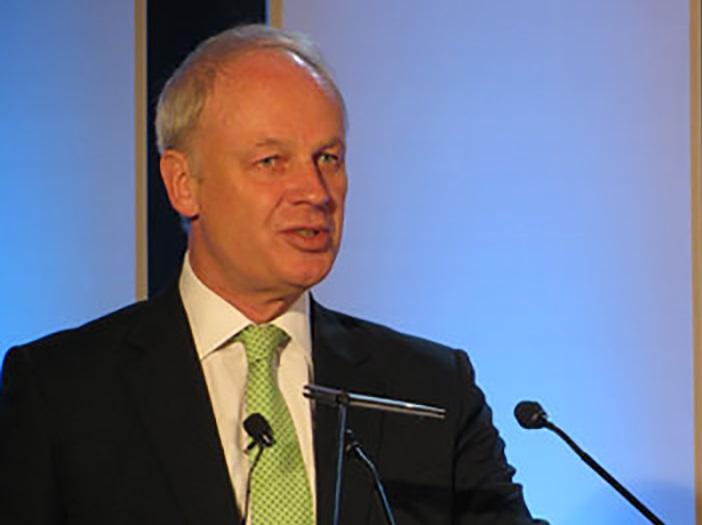
David Scowsill had this to say after being honored at UNWTO General Assembly
David Scowsill was the CEO of the World Travel and Tourism Council (WTTC) for some years. He recently resigned, but attended the ongoing UNWTO General Assembly in Chengdu, China.
He was honored by UNWTO Secretary General Taleb Rifai on Wednesday and had this to say:
“I am deeply honored to accept this accolade on behalf of the team and the members of the World Travel & Tourism Council, delivered here in Chengdu in front of some many ministerial friends.
The partnership between UNWTO and WTTC has been a truly global public/private partnership, where together we have visited 91 heads of state as part of the Global Leaders for Tourism Campaign. The Secretary General and I have always put our arms around the Tourism Ministers, and held very direct conversations with their Presidents and Prime Ministers about the key issues for the industry – visas, taxation, infrastructure, sustainable development and employment. For a diplomatic man, Taleb Rifai talks very directly just like a private sector person to educate these heads of state about the importance of travel and tourism.
UNWTO and WTTC did not always work closely together. Our predecessors sometimes fought publicly about differences on the approach to research. Taleb and I used each other’s numbers, because we understood the power of speaking with One Voice and one set of data. Our teams worked together. As my half-brother, we could read each other’s minds. He would start a sentence and I would finish it. It has been an extraordinary relationship.
I would like to take this opportunity to commend my successor Gloria Guevara Manzo to all the Ministers at the General Assembly. Apart from being a friend, she has the perfect public/private background to take WTTC forward. She has worked in the private sector with Sabre, before becoming Minister of Tourism in Mexico under President Calderon. An academic background with Harvard and various private board appointments have prepared her well to continue the relationship with UNWTO, working with the new Secretary General from 2018 onwards. Gloria this award presented today is for your team at WTTC, who have worked so hard to elevate the profile of WTTC.
My plans are to go ‘back to the future’ into the world of technology, from whence I came. As Chief Executive now of EON Reality Inc., the leading global business for Virtual Reality and Augmented Reality with offices all over the world, I am already talking with a number of ministers at this General Assembly about investing in their countries to create a training academy and software development business. Over the next 10 years, millions of jobs will disappear in this industry due to automation, robotics and artificial intelligence. We want to drive employment in this next wave of technology, to create jobs to combat this trend. The latest iPhone launched yesterday in the US will have an augmented virtual reality app for the first time, which will change the world for consumers and developers alike. If Apple take this seriously, we need to do the same. The opportunities with VR and AR for travel and tourism in your countries are limitless.
I want to commend the Secretary General, Taleb Rifai, for his extraordinary leadership and his tireless work to serve all his members. He has flown across the world constantly, with no regard for his health nor the wear and tear on his body. Behind every great man lies a great woman, and I would like to acknowledge the dedication of his wife Nisrine, who has been such a support to the UNWTO organization. Taleb Rifai has taken the World Tourism Organization to a new level within the UN system, and driven the importance of travel & tourism dramatically higher on the world agenda. He leads a magnificent team of people at the UNWTO, who have contributed to the dramatic success of his two terms of office. It has been an honour to work with you and to learn from you. When you leave your office, there is no doubt that you will have made the world a better place.”
David Scowsill is currently the CEO of EON Reality.
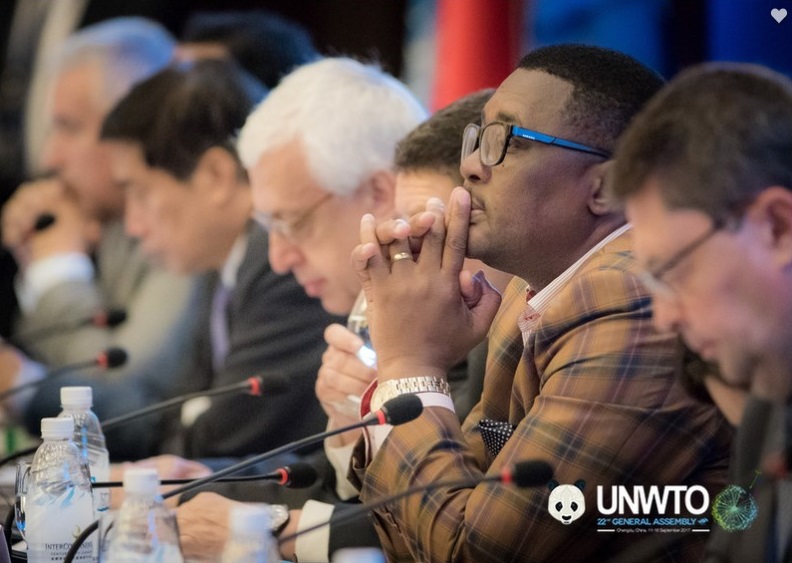
Addressing the UNWTO General Assembly: African style with a sharp global view
Yesterday, the outspoken Minister of Tourism for Zimbabwe, Hon. Walter Mzembi, addressed the General Assembly of the World Tourism Organization in Chengdu, China.
This is a transcript of his moving presentation:
Excellencies, Colleague Ministers, Ladies and Gentlemen:
Let me congratulate the People’s Republic of China on its grand hostess-ship of the 22nd GA of the UNWTO and excellent service and hospitality rendered to our delegations, and of course it’s assumption of the Presidency of the 22nd session.

I know the painstaking and elaborate work and resources invested in such projects, having been host myself for the 20th Session for which I thank you for your support then.
Let me proceed to note the inauguration of the World Tourism Alliance last night, an inevitable happening given your scale and projected leadership as an international source market and unparalleled network of alliances. It’s only natural that you would enter this space of non-governmental and business organization of global tourism, perhaps overdue. We pray the long-term objectives are to complement gaps identified especially in global funding and tourism development clearly missing in our current UNWTO. I hope this will strengthen UNWTO going forward and not duplicate what it is already doing or what other organizations are ceased with already as some of your founding articles may seem to suggest.

And still on this subject I would also plead for inclusivity, especially of the emerging economies, there is nothing global of course without Africa, if you miss Africa you have missed the world, or at least it’s 1.2-billion-people market, and I hope you can hastily include those missing at the very beginning in your structures to inspire confidence and improve the global appeal of the organization.
Zimbabwe is captured in the New York Times of the January 2015 edition as “a once avoided now a must visit destination ”
Rated at no 13, together with Rwanda at no 14 as Africa ‘s top attractions in the Condé Naste Magazine, top 17 destinations for 2017, this country which hosts and shares the majestic Victoria Falls with Zambia, is one of the Natural Wonders of the World. Our chief hospitality product is peace, safety and security.

Zimbabwe makes the claim to a 33-year tourist safety record, with not a single tourist life lost to conflict or war nor insecurity since 1983!
Today Zimbabwe is a $1 billion tourist economy set to grow to a $3 billion economy by year 2020, employs over 300,000 people directly and indirectly.
The Country shares seven trans-frontier conservation boundary areas developed to the scale of the ecosystem, with neighbors, South Africa, Mozambique, Zambia, Botswana, Namibia, and Angola, and has sound biodiversity policies which host a flourishing wildlife population and a diverse flora in its ecosystems.
Beyond its traditional markets in Europe Zimbabwe has developed strong bilateral relations with other parts of the world and has a BRICS growth strategy anchored by China whom it has granted a visa on arrival dispensation. Zimbabwe is largely an open destination with most countries in the world enjoying this visa on arrival preference.
How does one access Zimbabwe from China? You can be connected from OR Tambo, Johannesburg or Cape Town to any destination in Zimbabwe, Harare and VF included in just over an hour, 15 flights a day, or via Dubai, a direct flight of 8hours to Harare or VF.

The World Climate Agency at some stage rated Zimbabwe as host of the best climate on the globe. No natural Disasters except incessant droughts now mitigated by irrigation development. Google Zimbabwe at your own leisure to understand why Zimbabwe has been such a resilient product notwithstanding the adversity it suffered at some stage. We are the most endowed country in mineral wealth. As a colonial state, we were founded by the Rudd Concession because of the attraction of our rich natural resources and fertile soils. Ask the Chinese here they will confirm how they turned our adversity into an opportunity for themselves. Don’t be left out in this modern-day Eldorado to my country.
1) We reaffirm our thrust on finding a sustainable solution to securing peace for Tourism and its facilitation by the Security Cluster, and urge the Secretariat to facilitate more relevant engagements and interfaces for this sector to make its case. Continuing to meet alone and reciting our challenges will not resolve this challenge
2) We urge practical operationalization of the SDGs. As an example, Africa will need 660 billion euro a year to operationalize the SDGs, for the next coming years until 2030, in order to create 20million jobs a year to deal with illegal migration into Europe and other parts of the world, yet our ODA support is just 60billion Euro a year. How do we cover this gap? We have the biodiversity product, people, poor people, who are your greatest prospect and asset to a future source market if we develop a middle class out of them, turn them into tourists not migrants. A generation ago there was no tourist from China, no one wanted to receive you, today we outdo each other to receive you, with some countries giving you up to 10-year multiple entry visas, totally inconceivable a few years ago, WHY, because out of your poor, emerged a middle class of 400million people, out of which 128m today constitute the world ‘s largest source market. 4 billion trips are done internally, serious economic kinetics at play. To keep our people engaged at home we therefore need to discuss serious investment in the tourism sector in Africa and other developing economies to help in the elimination of joblessness, in itself a threat to security, because idle minds concoct terrorism, we have to give youthful lives a meaning to mitigate this major challenge.
So. lip service to resolutions on SDGs that does not translate into practical solutions will make us irrelevant in Cabinet tables where we seek accommodation. Let’s demonstrate Tourism’s greater relevance going forward.
Turning Global:
Finally, I want to thank you for the honor to champion reform and modernization with regards to elective issues around the Secretary General post. It is this post that gathers us every two years in this manner, to listen principally to this person who administers the organization between elective congresses and keeps us relevant to the world, even the best of white papers executed by an inappropriate choice, our collective choice can become for lack of a better expression a black paper. So, this is going to be the best decision of the 106th EC, notwithstanding the acrimony that gave birth to it yesterday, and a lasting legacy of the outgoing SG, I wish it had come sooner though. I pushed it not out of self-interest, NO, but because it was the best thing to do for our organization, someone had to carry the Cross and burden, because that is what leadership is all about. I opted to champion and magnify the cause because I admire the good work Taleb has done in the last decade. I know it, because I have been around long enough, almost a decade nearly matching your service as SG. Genuine friendship is built on honest feedback, no matter how nasty it may appear to those who may be unable to comprehend issues at the time. Equally, China can claim some credit, too, being a world case study and Champion of Reform itself, so we have no choice in this regard than to embrace change. In conclusion, no one appreciates Taleb more than Zimbabwe for standing by my country at its worst and bringing the GA to Zimbabwe, the rest is history. His name is indelibly captured in the memories of our people. I thank you, and God bless you all.
All photos © attreo studio 2017 CDR Photography
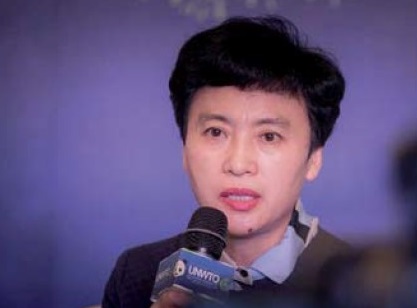
Interview: Director of Chengdu Municipal Tourism Bureau
Chengdu, host of the 22nd session of the UNWTO General Assembly, and capital of the Sichuan province, has been described as the ‘Best Tourist City of China’. The Director of the Municipal Tourism Bureau, Duoyang Nemu, explains for the GA Daily the meaning of this title.
Q – Chengdu has been named “Best Tourist City of China” jointly by the World Tourism Organization and the China National Tourism Administration, what are the goals and priorities of its future tourism development?
A – Chengdu has identified the long-term goal of becoming the World’s Tourist Destination City. It is focusing on the following areas: all-around tourism development, optimization of tourism products’ structure, public support service for tourism, “smart tourism” joint development, “Tourism +” industry integration, green/lowcarbon development, opening up and cooperation with foreign entities, international marketing and so on, and is expecting so see results. We hope to comprehensively promote the internationalization of Chengdu’s tourism industry.
Q – Chengdu is the “leisure capital”. It has recently won the title of “China’s Exemplar City for Leisure Tourism “, what do you make of that?
A – This title reflects the sense of happiness of tourists and residents in Chengdu and the quality of life in the city. The people of Chengdu love life, and enjoy life. The beautiful scenery, mild climate, abundant agricultural produce, thriving businesses and rich history gave Chengdu its strong “leisure characteristic”. Chengdu is the birthplace of Taoism, has a rich history of health and sports activities. Colorful recreational activities gave Chengdu the reputation of “Leisure Capital”. In addition to the teahouses that dot its streets and alleys, many wonderful bars, cafés, Sichuan Opera theaters, spa, sports centers and leisure farms make Chengdu a top choice for visitors to relax their bodies and minds. Day and night, Chengdu provides tourists with comfortable and enjoyable leisure options.
Q – Green development is an innovation on the basis of traditional development models. How does tourism in Chengdu implement green development?
A – Chengdu will give full play to the important role of tourism in the areas of stabilizing growth, structure adjustment, promoting reform, benefitting livelihoods, etc. It will utilize the ideas of “all around tourism,” “tourification” of entire industry chains and “tourification” of all factors of production and pursue the goal of making Chengdu tourism bigger and better. Further, it will seize upon the opportunity of being recognized and included in the first batch of the National Ecological Civilization Demonstration Areas, combined with the city’s development plan of “Advance along the East and South, Halt on the West, Re-construct the North, and Improve the Middle”, form a ecological living space that combines “Mountain, City, Lake and Garden” through integrated, green, low-carbon and “cycle economy” development. In this way, it will strengthen the eco-tourism project, establish Chengdu’s international ecotourism brand. It will develop the tourism industry into one that promotes private sector development, urban-rural integration and ecological landscaping. It will develop tourism into a strategic pillar industry and a people-oriented industry that improves the wellbeing of the people.
Q – Can you elaborate on the Green Tourism Standards Certification?
A – With regard to the Green Tourism Standards Certification the process is to follow the strategic path of “ecology first, characteristic development” and insist on the combination of resource development and ecological protection, strengthening and promoting the Green Product System of “National Park, Green Hotels, Green scenic spots, Green Tourism Products”. This way, we will implement the Green Certification scheme for tourism products and enterprises.
Q – In that framework you talk about the champions of ecotourism.
A – Yes, the strategy of developing champions of eco-tourism includes examples such as the Pingle Ancient Town-Tiantai Mountain National 5A-level Tourism Site, Qingcheng Mountain National-level Tourism Resort, Snow-capped Xiling Mountain-Huashui Bay Hot Spring National Tourism Resort and Three-Lakes-One-Mountain National Tourism Resort. We will actively promote the construction of an eco-recreational zone around the city, an international RV camp, and an international RV network. We will also consider developing a number of holiday villages, private accommodations, a start-up town and theme inns, in this way we can promote and upgrade rural tourism. Thirdly, we will implement energy efficiency programs for tourism. We will actively promote green tourism development and Low-carbon operations, develop eco-friendly tourism environment and ecointensive tourism economic system. Fourthly, we will implement the Green Tourism Initiative. With the theme of greenness, we will advocate low-carbon tourism, green consumption, so as to make tourism an advantage industry in a “two-type society”. Fifthly, we will implement Green Tourism Development Incentive Scheme. By implementing “Chengdu City policy measures on the promotion of tourism reform and development” and “Chengdu Tourism Promotion Regulations”, we should be able to ensure the healthy development of green tourism in our city from an institutional level.
Q – Chengdu is the world’s “food capital”, what are the characteristics of its food?
A – The characteristics of Chengdu Sichuan Cuisine are “Spicy, Hot, Tasty and Aromatic”. With more than 6,000 different dishes, each Chengdu/Sichuan dish has its distinct flavor. Moreover, there are authentic French, Japanese, Thai and other cuisines that can be found in Chengdu, providing visitors with more personalized choices.
